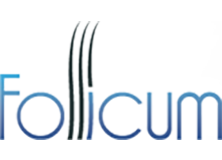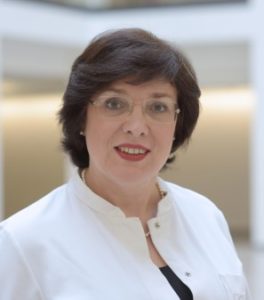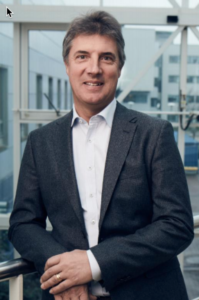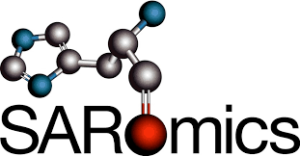
Follicum’s CEO comments on the study approval and Vinnova grant
FOL-005, Follicum’s hair growth candidate, has received approval from German authorities to initiate a phase IIa study. Patient recruitment will commence shortly, and initial results are expected before the end of the year. The company’s aim is to then out-license or sell the candidate in an appropriate and optimal developmental phase. Last week Follicum also received a Vinnova grant to study FOL peptides within the framework of the company’s diabetes project.
Follicum’s most advanced drug project FOL-005, is being developed to stimulate hair growth in patients with hair loss, alopecia. The most common form of alopecia is called Androgen Alopecia and affects the majority of men but also a very large proportion of women. The illness is stigmatising for the affected person and often leads to reduced self-esteem, which can greatly impact the patient’s daily life.
Currently, there are no treatments indicated for all alopecia patients, and the alternatives available on the market have a limited effect. These treatments are also associated with a number of negative side effects. So, the demand for new and effective treatments that are available to all sufferers is high.
Backed up by positive clinical results
FOL-005 has previously undergone two clinical trials with positive outcomes. Just before the turn of the year, an injectable version of FOL-005 demonstrated that hair growth increased by an average of 7 hairs per 2cm. These results were achieved after 3 months of treatment with injections only 3 times a week. This corresponded to the results achieved after 6 months with the treatment options currently available on the market, such as Minoxidil and Finasteride.
were achieved after 3 months of treatment with injections only 3 times a week. This corresponded to the results achieved after 6 months with the treatment options currently available on the market, such as Minoxidil and Finasteride.
However, even though the study results were encouraging, Follicum decided that an injectable hair growth product was not user-friendly enough for the intended end consumer and have, therefore, developed and tested a topical preparation of FOL-005. At the beginning of the summer, the topical formulation of FOL-005 was completed and a study in mice showed that it was equivalent to the commercial product Minoxidil.
Phase IIa study approved
The next step in the development is to study the clinical effects of the topical formulation of FOL-005 where dose, dosage frequency and treatment length will be optimised. The purpose of the study is to investigate safety, efficacy and response.
The study will be conducted in Germany, and last week it was announced that the German Medicines Agency (BfArM) and the German Ethics Committee had both approved Follicum’s phase II study with the topical formulation of FOL-005.
Collecting more data
The study, comprising about 200 individuals, will see male alopecia patients treated with one of three strengths of FOL-005 or a daily placebo for 4 months. This is a longer treatment period than previously investigated. Given that the hair growth cycle is a slow process, the company expects to be able to see a more substantive result in the upcoming study compared to the previous one and this is of course positive.
The larger patient base in terms of studied individuals will also contribute to clearer results. A more extensive database makes it possible to draw a stronger and more secure statistical conclusion.
Well established study centres
Just like the previous clinical studies with FOL-005, the now approved phase IIa study will be carried out in collaboration with the Charité Clinical Research Center for Hair and Skin Science (CRC) in Berlin. This time Follicum will also collaborate with the CRO proDERM in Hamburg.

The work will be led by Dr. Ulrike Blume-Peytavi, professor and medical director of the CRC. Dr. Blume-Peytavi has extensive experience in both clinical dermatology and hair disorders, but she is also well versed in FOL-005, as she was the PI (Principal Investigator) for the two previous clinical studies with Follicum’s candidate. This provides continuity in Follicum’s clinical studies, and the company can be confident that the study will be carried out in the best possible way.
Follicum’s choice to conduct their clinical development in Germany is due to the country’s world-leading expertise within hair, which in turn gives the clinical results solid scientific validity.
A fully financed study aiming for results before the end of the year
Follicum told BioStock that the proDERM clinic has a large client base and expects a quick patient recruitment, while the recruitment at CRC might take a little longer. However, the hope is to be able to recruit all patients within a few months, and then to complete data collection during autumn. Thereafter, the data will be processed and Follicum believes that it will be able to present initial phase IIa results for the topical preparation of FOL-005 before the end of the year.
The capital raised by Follicum during the summer of 2019 – through two fully subscribed issues totalling 56 million SEK – allowed the company to focus wholeheartedly on the upcoming clinical study. The capital should be sufficient until Q1 2021, and the company thus expects to be able to finance the business until the phase IIa results are in place and can be used to further partnering discussions.
Follicum have long stated that their strategy is to out-license or sell its projects, both the hair and the diabetes project, when the greatest possible value for the shareholders can be achieved.
The CEO comments on the study approval
In a press release, Follicum’s CEO Jan Alenfall commented onBfArM’s and the German Ethics Committee’s decision:
– We are very pleased that we have now received the “green light” from both the German Medicines Agency and the Ethics Committee to start the new study with FOL-005. Other preparations are also in place and we expect patient recruitment to begin soon. In this study, patients apply the topical formulation of FOL-005 or placebo once daily, thus both simple and practical for repeated long-term treatment. We now look forward to conducting the study together with CRC and proDERM and we look forward to results at the end of the year.
In a conversation with BioStock, Alenfall elaborated further.
Jan Alenfall, first of all, congratulations on the approved study. You have been working towards this goal for some time; what is it like to have reached this milestone?
– We are very happy to have received the go-ahead for initiation of the study.

Have you faced any challenges on the road to approval?
– We have worked hard to gain approval for an extra month of treatment because we believe it is important for the study result. We know that hair growth takes time and getting permission to treat for an extra month is important to us.
– Although our preclinical safety package only covers three months of treatment, the authorities have decided to grant permission to treat each patient for four months, a decision based on our good safety data from the preclinical and clinical studies.
What does it mean to have the continuity in the studyin the form of the same PI as in previous studies with FOL-005?
– Our PI, Dr. Ulrike Blume-Peytavi, is a global Key Opinion Leader and has vast experience in the field of hair and clinical studies. It means a lot to us that she is also a part of this FOL-005 study.
– In addition, the entire team at CRC is experienced in the field of hair growth and it is valuable for us that the study is conducted at a competent research centre that is well known in the industry.
The plan to deliver data from the study before the year is over is a rather ambitious one. How likely are you to succeed with this ambition?
– Patient recruitment is always a challenge, but we have set ambitious goals in order for the process to run as quickly as possible. We are constantly involved in the process and will follow the recruitment closely.
When results do arrive, what are expectations on the study outcome?
– Of course, we want a very clear result, and, based on the previous results, we are very excited for these results. It would really be great to be able to report a good response at the end of the year.
If these expectations were to become reality, what would it mean for Follicum and for your shareholders?
– For the company, it means a very intense period with presenting the results and further discussions with potential partners. Of course, we also hope that our shareholders will be happy if the results are as expected.
Vinnova grant of 0.5 million SEK
As if the approval of the phase IIa study was not enough, last week Follicum could also announce that it, together with Lund University and Saromics Biostructures, had received a Vinnova grant of 500 000 SEK to study the binding of FOL-peptides to pancreatic cell receptors. The project will be an explorative part within the company’s diabetes project. BioStock also discussed this project with Follicum, which will be the coordinator of the project.
FOL-peptides to pancreatic cell receptors. The project will be an explorative part within the company’s diabetes project. BioStock also discussed this project with Follicum, which will be the coordinator of the project.
Jan Alenfall, what does your Vinnova-financed project entail, and when is it expected to be carried out?
– It is an advanced project that involves studying how our peptides bind to the surface receptors that we have previously identified as possible targets, something that can only be studied with these advanced techniques. The project is allowed to take a maximum of 1.5 years.
 Follicum are coordinators for the project, but Lund University and Saromics Biostructures are also a part of the project. How do interests and roles in the project differ between the three organisations?
Follicum are coordinators for the project, but Lund University and Saromics Biostructures are also a part of the project. How do interests and roles in the project differ between the three organisations?
– We have different roles within the project; Follicum will coordinate the work and a collaboration will take place with the university and with Saromics.
– The university’s role is that the post-doc that we are already working with in our diabetes project will carry out certain parts of the project, which is entirely in line with her work on studying the mechanism of action of the FOL peptides. Saromics are the ones who will actually carry out the advanced studies at MAX IV in Lund. If the project goes well, we are likely to increase the cooperation and follow up on these studies in the longer term.
What does it mean to you to be able to collaborate with these organisations?
– It is absolutely crucial for us in this project, as the other two actors have skills that we ourselves do not have in-house. It is also very positive that they are geographically close to us in order for the collaboration and the project to proceed as smoothly as possible.
 According to your press release, parts of the project include analyses performed at the new MAX IV in Lund – one of Sweden’s largest and most advanced research facilities. Could you elaborate on the need for this advanced equipment?
According to your press release, parts of the project include analyses performed at the new MAX IV in Lund – one of Sweden’s largest and most advanced research facilities. Could you elaborate on the need for this advanced equipment?
– The purpose of the project is to study molecular interactions between the receptors and our peptides. To put it simply, MAX IV is an extremely powerful microscope that allows us to look at our peptides and understand how they dock to the receptor.
This project seems to be a little bit outside of your usual activities. How will it benefit your diabetes project?
– This project is important in terms of being able to see in detail how our peptides work at the molecular level, thus providing valuable insight into how the peptides bind to our receptors and a deeper understanding of its mechanism of action. The knowledge gained through the project may also be used to strengthen our patents. The results of such a project will certainly be important in discussions with our future partners.
The content of BioStock’s news and analyses is independent but the work of BioStock is to a certain degree financed by life science companies. The above article concerns a company from which BioStock has received financing.


